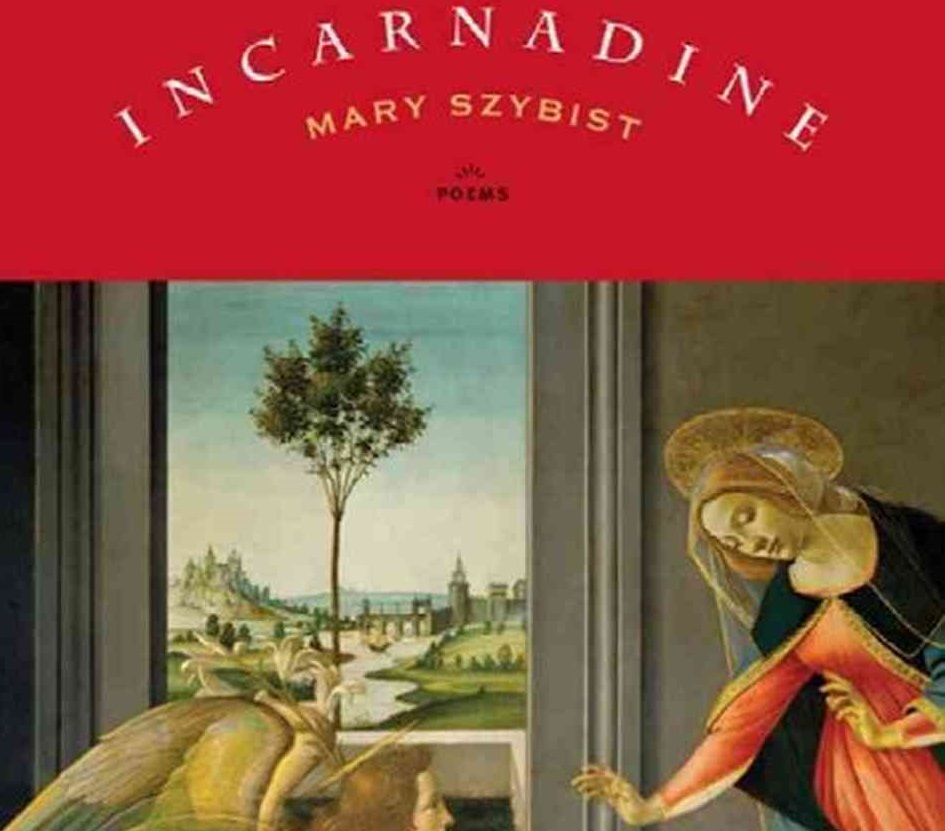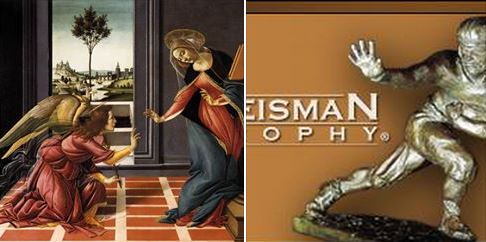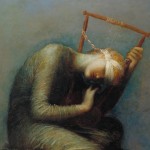
Poetry is meant to be performed out loud, just like the liturgy—the connection between these two forms of human expression probably goes to the roots of human history. They are the oldest forms of communication and frequently liturgy was poetry, and poetry was liturgy.
This lesson learned and filed away came back to me on my birthday. Mary Szybist was in Seattle doing a reading from her collection Icarnadine sponsored by IMAGE Journal on February 11. This day is also the World Day of the Sick. Her reading voice reminded me of this day in the Church reserved for celebrating weakness, illness, and vulnerability.
My favorite poem from Incarnadine is probably “Update on Mary.” It is representative of the collection, because of its playful sadness somewhere on the edges of religious hope.
Here is a short excerpt from that poem which gives you an idea of the whole collection’s richness:
Mary always thinks that as soon as she gets a few more things done and finishes the dishes, she will open herself to God.
At the gym Mary watches shows about how she should dress herself, so each morning she tries on several combinations of skirts and heels before retreating to her waterproof boots. This takes a long time, so Mary is busy.
Mary can often be observed folding the laundry or watering the plants. It is only when she has a simple, repetitive task that her life feels orderly, and she feels that she is not going to die before she is supposed to die.
Mary wonders if she would be a better person if she did not buy so many almond cookies and pink macaroons.
When people say “Mary,” Mary still thinks Holy Virgin! Holy Heavenly Mother! But Mary knows she is not any of those things …
That last line reminds me of Catherine of Siena, who once heard God say, “You are she who is not, and I AM HE WHO IS.”
================================================
You can read the rest of this piece on Incarnadine at Ethika Politika (“You are She Who is Not”: Szybist’s Incarnadine).
For more contemporary poets whose work simultaneously feeds off of and feeds theology, look here.
After yesterday’s comedy post about Cardinal Burke and feminization here’s an image to contemplate:

















